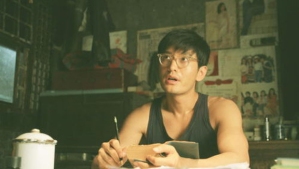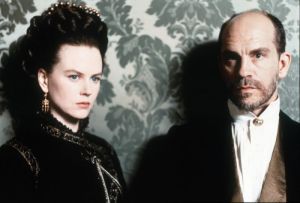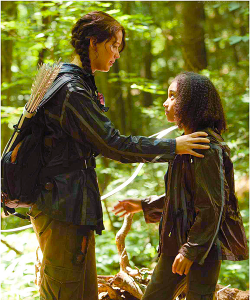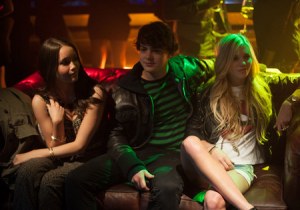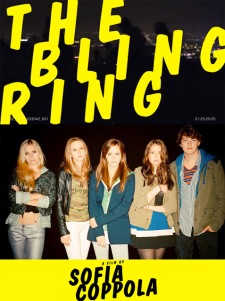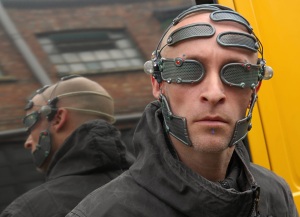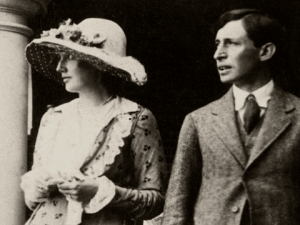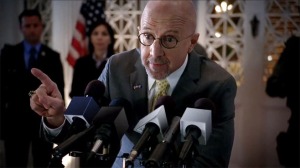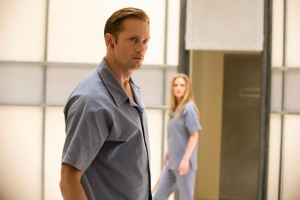The film American Dreams in China (2013) is a Chinese film about upward mobility that will feel familiar to most Americans. It’s sort of a Horatio Alger story about getting rich, sort of a Great Gatsby tale of disillusionment with traditional forms of success, sort of like The Social Network in its glorification of entrepreneurship.
The interesting difference is that all the aspirants are mainland Chinese, and the great prize is the American university degree, guarded by stone-faced visa officers, impossible vocabulary lists, and treacherous cultural differences that force you to pretend to be open, casual, and practical. It’s fun—and only fair—to see American plots transposed west to new settings, with Americans cast in the villain/mentor roles in which American films have traditionally cast British actors. (Welcome, Benedict Cumberbatch, to a long period of remunerative employment!) The movie has been a big hit in mainland China.
in mainland China.
But, speaking in my incredibly limited (and yet relevant) role as an American university professor, I was disturbed by the movie’s representation of WHY you might want to study in America. The Chinese students—Cheng, Meng, and Wang—are sympathetically differentiated in their motivations. Cheng Dongqing is the son of the poor farmer whose mother went into debt to finance his education, and is tormented by a fear of failure. He never gets his visa approved—though his beautiful girlfriend does, and leaves him. Wang Yang is the sensitive poet, who has an affair with a pretty American named Lucy (who for some reason is studying in the PRC in the ’80s). He doesn’t get a visa either. Meng Xiaojun is the superior one, who gets his visa and his degree, but finds life as a luckless immigrant too hard and humiliating, and returns to China with an enormous chip on his shoulder.
When Meng returns, he finds that Cheng and Wang have teamed up to tutor a new generation of Chinese students in how to beat the TOEFL and the GRE, and win the prize (ironically) that they were denied themselves. Their tutoring company, “New Dream” (loosely based on the Beijing New Oriental and Education and Technology Group), is a phenomenal success, with increasingly large classes of laughing and excited students. The “losers” are now rich! In the movie’s climactic scene, Cheng crushes and impresses the American legal team who are suing him for what appears to be unauthorized use of TOEFL test questions. He has memorized an entire legal book on the plane, from which he can quote passages at random—in order to prove that Chinese students are just great test takers, a stereotype the movie plays with and rejects, but eventually embraces. The outcome of the legal case is unclear, but at least the Chinese businessmen have finally won respect from the unsympathetic (and generally white) bad-parent gatekeepers.
It’s a satisfying B-movie plot. Possibly it’s Chinese propaganda, as this blogger suggests—but B movies are not usually subtle, and I found this one eminently watchable.
For me, the painful part of the film was its replication of a debate currently ripping apart the American university system about its structure and ultimate ends. Is the university system merely about credentialing—is it an empty machine stamping out degrees that certify economic worthiness? Is it about getting a certificate and passing a test, after which “success” will follow? Or is it even remotely still about “something more”: popular access, democracy, citizenship, human plenitude, imagination, creativity, originality, political questioning, the independent search for knowledge and truth? You are laughing scornfully because you’ve read Bourdieu, and The University in Ruins, and you know that American universities are increasingly enchanted by a corporate model that promises short-term gains built around the intellectually-vacant concept of “excellence.” But I’m upset! I still want some of what’s in category B, the part that this movie (for reasons of nationalism and artistic compression) simplifies away. I’m not in this business to scowl & deny my students advancement.
The structure of national longing depicted in the movie is that Americans have business success (as well as every other kind of success), and the Chinese understandably want a piece of that. But Americans have nationalist inferiorities of our own. Sometimes we get bored with mere business success, and historically we look eastward to Europe for some kind of art and culture we can never have. Henry James is the avatar of our own national discontent: Americans feel obscurely that we are not good enough at artistic subtlety and dark psychology, so: well, have you read Portrait of a Lady? Some of those national dreams of beating Europeans at their own game are embodied in American universities—but these Chinese students ignore the atavistic Eurocentric parts of American universities (a.k.a. the humanities) because they can’t translate those courses into success at home. Poetry (as Wang discovers) does not cross borders easily.
The movie’s Chinese students show that the emotional structure of meritocracy can be international: it leaves you with perpetual longing and self-hatred, whether you feel like an insider or (as more commonly) a parvenu, an immigrant, a racial minority, a sexual minority. There’s a kind of solution for this, and it is to come together and recognize our common needs rather than focus just on our own “success.” (It would have been nice, for instance, if Meng had some sympathy for the waitress who under-tipped him—since they are caught in common structures of blue-collar precarity—rather than simply being offended and rejoicing when he surpasses her.) But of course meritocracy is also about the desire for individual distinction, and that’s pretty much the opposite of wanting to share that hard-won respect with others. It’s easier to be generous when you’re at the top—which is why we need at least the fiction that we get our degrees in order to give something back to society. That counterweight to personal selfishness is not just good for those less fortunate; it provides an essential emotional buffer against the fears of personal inadequacy that can make meritocracy so painful.
Both heartless meritocracy and idealistic scholarship can lead to disappointment and disillusionment. But they’re not completely identical: the idealism of scholarship is ultimately to advance the cause of free inquiry and truth, not just individual success. If the American university loses that idealism and turns into a mere degree-granting machine, we will lose part of our raison d’être, as William James warned. Moreover, an entirely selfish meritocracy is almost too painful to bear; you never stop feeling like a loser. American Dreams in China shows that the desire to rise is a powerful force, and its nationalism is kind of understandable, but its depiction of the motivation for success is ultimately narrow and unsatisfying.

